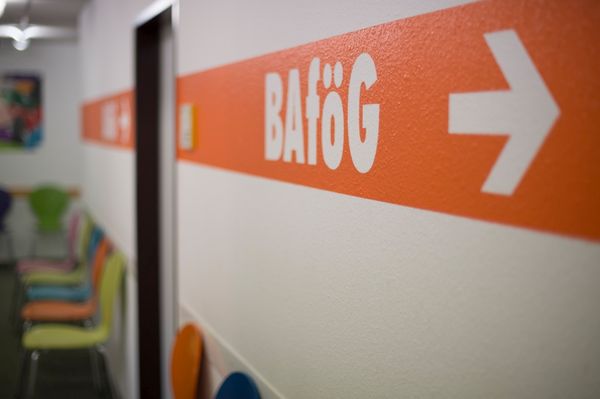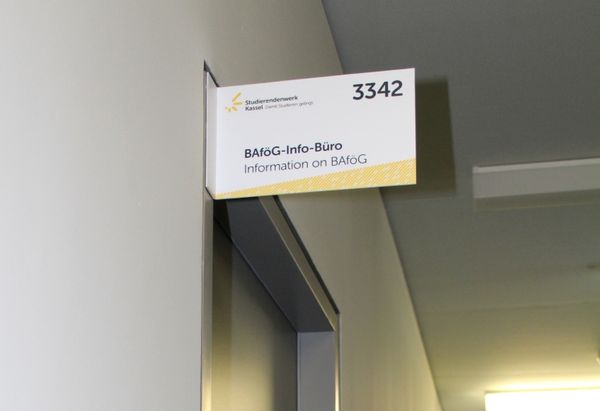BAföG
50 Years Studierendenwerk - 50 Years BAföG
BAföG stands for more equal opportunities in the German higher education system. This state financial support for students has been in place since 1971 and has proven its worth millions of times over. More than four million people have been able to study thanks to BAföG. Today, just under one-fifth of students benefit from the Federal Training Assistance Act (BAföG).
BAföG is intended to enable young people to finance an education that matches their abilities and inclinations. Students receive BAföG if their own financial means and those of their parents or life partners are not sufficient.
The Studierendenwerk advises and informs about the path to BAföG, calculates whether there is an entitlement to BAföG, assists in filling it out and finally processes the application so that it does not take longer than necessary until the first payment is received.
Historically, it was a long way to regulated education funding.
The Economic Miracle
It is the 1950s in Germany, where economic life picks up surprisingly quickly after the war. The population's standard of living rises, and there is almost full employment. But the first social survey of the Studentenwerke in 1952 shows: The economic miracle passes the students by. They benefit little from the upswing, and social benefits barely reach them. Those who cannot finance their studies privately have a hard time.
This led to a discussion about a new regulation of educational funding. In 1957, an agreement was reached on the "Honnef Model": the federal and state governments shared the costs of student grants - initially 150 German marks per semester. However, the effect remains limited: No more than 20 percent of students receive financial support - there is no legal entitlement. The Studentenwerke continue to push for better financial aid for students.
Finally Enshrined in Law: BAföG
A change of government is needed to get things moving: Willy Brandt becomes Chancellor in 1969. Under the new government, the Federal Training Assistance Act (BAföG) comes into force in 1971.The subsidy is now a full grant, so it does not have to be repaid, and there is an enforceable legal claim to BAföG. Thus, state funding of studies becomes a real success: At the Gesamthochschule Kassel, founded in 1971, there are already 4,800 students financing their living expenses with BAföG one year later - by the end of the 1970s, this figure is as high as 52 percent of all students.
BAföG Becomes Partial Loan
However, rising student numbers (and thus costs) make the law a point of contention time and again. In 1983, Kohl's government changed the funding to a full loan; BAföG funds must be repaid in full with immediate effect. For many students, this means a high hurdle: The number of applications collapses. Various corrections follow, and the full loan finally becomes a partial loan. Nevertheless, by the year 2000, the number of students receiving BAföG funding had dropped significantly. In Kassel, only 11.4 percent of students receive BAföG - many need part-time jobs to make ends meet.
BAföG in Transition
In 2021, BAföG is still an important pacemaker for advancement through education. It's worth applying for. 50 years after BAföG came into force, state student funding is half free money, half interest-free loan - but a maximum of 10,000 euros has to be paid back.
At the same time, basic benefits have been adjusted several times to reflect higher living costs - parental allowances have risen, as have rates of need and flat rates for housing costs.
BAföG makes studying easier - those who receive BAföG have to work less and have more time for studying. By the way, BAföG recipients do not have to pay broadcasting fees - this alone saves 210 euros per year.
The BAföG application itself has become digital. And it is much more convenient than it used to be. As soon as they enter their data, applicants can see whether anything is missing or whether corrections need to be made. And those who have an eID can even submit their application completely paperless.
What hasn't changed in five decades: Our friendly BAföG team provides support in word and deed, is happy to answer any questions, and helps pave the way to secure student financing.



